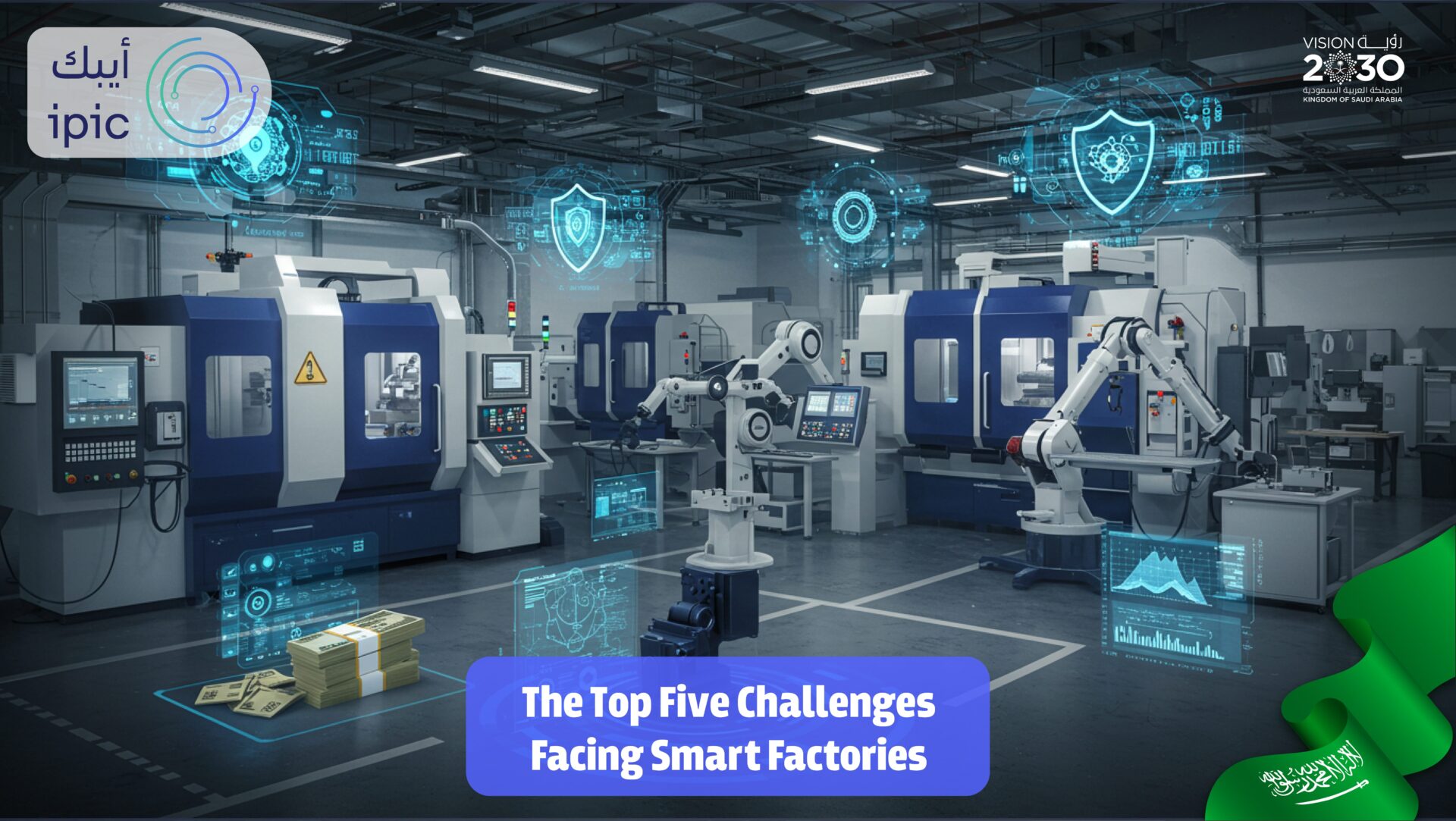The Top Five Challenges Facing Smart Factories
While the transition toward smart factories has become a necessity to keep pace with the rapid changes of Industry 4.0, the journey is not without challenges. Smart factories rely on technologies such as IoT, AI, and integrated systems like ERP and MES, creating enormous opportunities but also significant obstacles that require careful management.
Here are the five biggest challenges smart factories face:
1. High Investment Costs
Digital transformation requires significant investments in infrastructure, hardware, software, and integration systems. For many small and medium-sized factories, costs are a major barrier, especially in the absence of a clear plan to measure ROI (Return on Investment).
2. Complexity of System Integration
A smart factory relies on seamless integration between ERP, MES, IoT, and AI. However, connecting these systems can be complex, sometimes resulting in data gaps if not planned and executed properly.
3. Industrial Data Security
As connectivity and data exchange increase, so do the risks of cyberattacks. Protecting sensitive factory data—such as production lines, supply chain information, or customer details—has become a top priority.
4. Shortage of Skilled Workforce
Even with advanced technology, the human factor remains critical. Factories need trained professionals capable of managing digital systems, analyzing data, and leveraging AI tools effectively.
5. Resistance to Change
Employees and even management teams may resist shifting from traditional to digital systems due to fears of complexity or job loss. Smart change management and gradual adoption are essential to overcoming this barrier.
How IPIC Helps You Overcome These Challenges
At IPIC, we understand that building a smart factory is not just about technology—it’s about strategy and execution. That’s why we provide:
- Digital feasibility studies to measure ROI.
- Advanced integration solutions to connect ERP, MES, and IoT seamlessly.
- Specialized cybersecurity tools for industrial data protection.
- Training and upskilling programs for your workforce.
- Change management strategies to ensure smooth adoption and reduce resistance.
Conclusion
Smart factories represent the future of manufacturing, but success requires addressing the five key challenges: cost, integration, security, skills, and change management. With the right partner like IPIC, these challenges can be transformed into real opportunities for growth and innovation.



